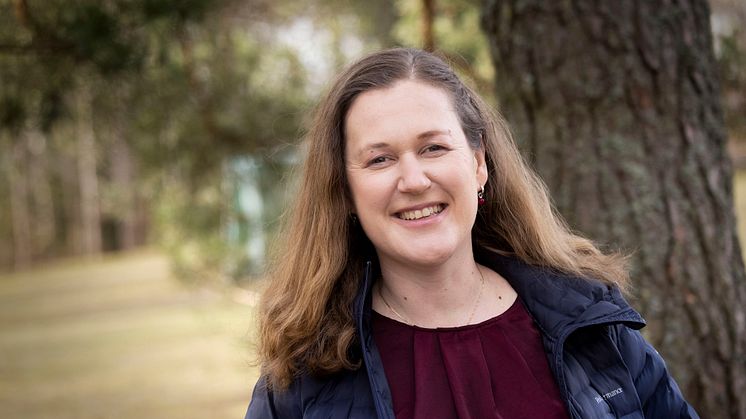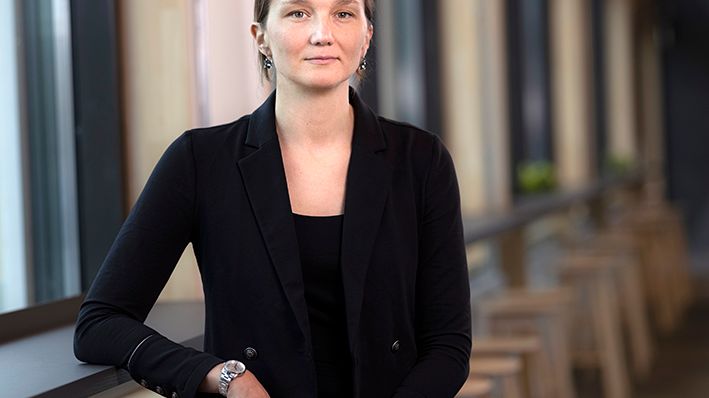
Press release -
Symptom data help predict COVID-19 admissions
Researchers at Lund University and Uppsala University are conducting one of the largest citizen science projects in Sweden to date. Since the start of the pandemic, study participants have used an app to report how they feel daily even if they are well. This symptom data could be used to estimate COVID-19 infection trends across Sweden and predict hospital admissions due to COVID-19 a week in advance. The results have now been published in the scientific journal Nature Communications.
Peer-reviewed - Observational study - People
The analyses included more than 10 million daily reports from participants in COVID Symptom Study Sweden from April 2020 to February 2021. The scope of the study was to develop and evaluate a framework to estimate the regional prevalence of COVID-19 using symptom-based surveillance, and to test if these prevalence estimates could be used to predict subsequent trends in COVID-19 hospital admissions.
“We show for the first time that symptom data can be informative in predicting subsequent regional trends in hospital admissions due to COVID-19, and confirm previous reports that trends in symptoms are related to community infection rates. These symptoms-based methods could be particularly useful in time periods and areas with low COVID-19-testing,” says Tove Fall, Professor of Molecular Epidemiology at the Department of Medical Sciences, Uppsala University, one of the lead authors of the study.
The app used for data collection was originally developed by ZOE, a health science company, with support from physicians and researchers at King’s College London and Guy’s and St Thomas’ Hospitals, for non-commercial purposes. The ZOE COVID Study was first launched in the UK and the US in March 2020. It was adapted and introduced in Sweden, where it is known as COVID Symptom Study Sweden, in April 2020. Any adult in Sweden can participate by downloading the app and providing in-app consent. Participants fill in a general baseline health survey, and can then report how they feel each day, even if they are well. Over 209,000 participants in Sweden have contributed so far, providing daily reports on symptoms, COVID-19 test results and vaccinations.
“This project would not have been possible without the dedication, hard work and collaborative spirit of our team members and colleagues in the UK and US. Above all, we have to thank each and every study participant for their contributions. Performing ‘real-time’ science is challenging, but of utmost importance during a pandemic. We are proud that we have been able to share real-time national and regional COVID-19 prevalence estimates on our dashboard almost every day since May 2020, and that COVID Symptom Study Sweden data was useful to Swedish municipalities and county councils. With over 4.7 million contributors globally, the ZOE COVID Study is one of the largest ongoing public science projects of its kind and has shown us the power of citizen science,” says Maria Gomez, Professor of Physiology at the Department of Clinical Sciences and Lund University Diabetes Centre, one of the lead authors of the study.
Researchers developed and validated a model to understand which symptoms were associated with a positive COVID-19 test, using data from participants who had reported symptoms and results from COVID-19 PCR-tests. That model could then be employed to estimate daily national and regional COVID-19 prevalence in the entire study population, as well as subsequently in the Swedish adult population. Combining app-based prevalence estimates with information on current hospital admissions, researchers were also able to predict future hospital admissions with moderate accuracy. Furthermore, the same model could be successfully applied to an English dataset to predict hospital admissions across the seven English healthcare regions, highlighting the transferability of the model to other countries.
“Real-time and granular pandemic surveillance requires combining multiple sources of data,” says Beatrice Kennedy, research fellow at the Department of Medical Sciences, Uppsala University and first author of the study. “Our findings highlight how app-based symptom-based surveillance may constitute a scalable and dynamic tool to monitor infection trends, and as such it should be considered in future pandemic preparedness plans.”
Publication: Kennedy et al (2022); “App-based COVID-19 syndromic surveillance and prediction of hospital admissions in COVID Symptom Study Sweden”, Nature Communications; DOI: 10.1038/s41467-022-29608-7; https://www.nature.com/articles/s41467-022-29608-7
COVID Symptom Study Sweden is a collaboration project at Lund University and Uppsala University. The research leaders are Tove Fall, Maria Gomez and Paul Franks.
For further information, contact:
Tove Fall, Professor of Molecular Epidemiology, Department of Medical Sciences, Uppsala University. Mobile: +46 (0)70 221 58 59, email: tove.fall@medsci.uu.se
Maria Gomez, Professor of Physiology, Department of Clinical Sciences, Lund University Diabetes Centre, Lund University. Mobile: +46 (0)70 222 62 16, email: maria.gomez@med.lu.se
Paul Franks, Professor of Genetic Epidemiology, Department of Clinical Sciences, Lund University Diabetes Centre, Lund University. Email: paul.franks@med.lu.se
Major support from the Swedish Heart-Lung Foundation, Swedish Research Council, European Commission (ERC-2015-CoG - 681742 NASCENT, ERC-2018-STG - 801965 GUTSY), eSSENCE@LU 8:8 (eSSENCE: The e-Science Collaboration), Swedish Foundation for Strategic Research (LUDC-IRC, 15-0067), Crafoord Foundation and EUGLOHRIA (101017752), Knut and Alice Wallenberg Foundation as part of the National Bioinformatics Infrastructure Sweden at SciLifeLab. ZOE Limited provided in-kind support for all aspects of building, running and supporting the app and service to all users worldwide. For a complete list of support received by the individual investigators, please see the published paper.
COVID Symptom Study Sweden is approved by the Swedish Ethical Review Authority (DNR 2020-01803, 2020-04006, 2020-04145, 2020-04451, 2020-07080, 2021-02316).
Topics
Categories
Uppsala University
The first University in Sweden. Quality, knowledge, and creativity since 1477. Education and research of the highest quality and relevance to society, business, and culture. Uppsala University is ranked among the world’s top higher education institutions. www.uu.se




